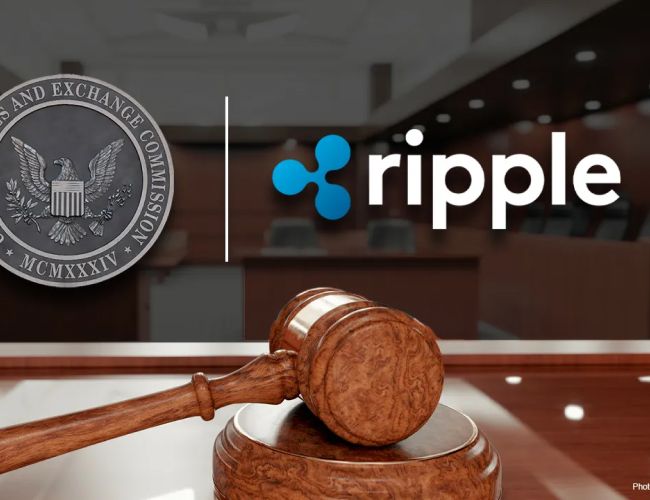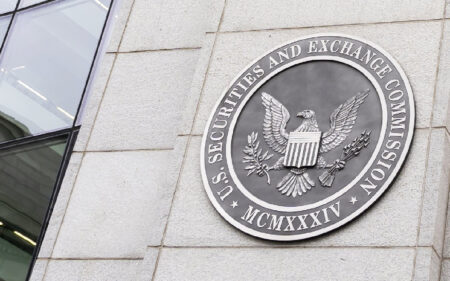-
SEC appeals Ripple ruling to Second Circuit, aiming to redefine XRP as a security.
-
Ripple leadership confident, citing prior court skepticism of SEC’s arguments.
-
Appeal outcome may set precedent for U.S. digital asset regulation and crypto market oversight.
The U.S. Securities and Exchange Commission (SEC) has officially advanced its appeal in its ongoing legal battle against Ripple Labs, filing it with the Second Circuit Court of Appeals. This development comes after Judge Analisa Torres ruled partially in favor of Ripple in July 2023.
The SEC’s appeal, filed on October 4, 2024, has been recorded in the PACER system under docket number
#XRP #XRPCommunity@coinbase has asked the judge in its case to certify its interlocutory appeal so that it may present its case to the 2nd circuit alongside Ripple.
Together, both cases would give the 2nd circuit a comprehensive view of the SEC’s unlawful approach to crypto. I… pic.twitter.com/dGjPz0CjjW— Ashley PROSPER (@AshleyPROSPER1) October 5, 2024
The SEC’s appeal targets Ripple Labs and includes Ripple’s top executives, Brad Garlinghouse and Chris Larsen, as “Defendant-Appellee.” The appeal represents a continuation of the SEC’s efforts to challenge the earlier ruling, which went in Ripple’s favor, particularly regarding whether XRP, Ripple’s cryptocurrency, should be considered a security under U.S. law.
Despite the SEC’s previous loss against Garlinghouse and Larsen, the agency is pursuing their inclusion in the appeal.
The central focus of the SEC’s legal challenge is to overturn specific aspects of Judge Torres’ ruling. This ruling, delivered in July 2023, significantly impacted how XRP, and potentially other crypto assets, are classified. By challenging this outcome, the SEC aims to establish a clearer regulatory framework for digital assets that aligns with existing securities laws.
Ripple’s Legal Response and Confidence
Ripple remains firm in its position, with its leadership expressing confidence in the appeals process. CEO Brad Garlinghouse and Chief Legal Officer Stuart Alderoty have publicly indicated their optimism that Ripple will continue to prevail.
Alderoty cited prior Second Circuit decisions, which demonstrated skepticism toward the SEC’s legal arguments, as a basis for his confidence.
A few of my favorite 2nd Circuit Court of Appeals quotes from the last time the SEC stuck its hand into that appellate buzz saw. [SEC v Govil]
1. “We do not agree with the SEC.”
2. “We are not persuaded” by the SEC’s arguments.
3. “The SEC’s counterarguments are unavailing.”— Stuart Alderoty (@s_alderoty) October 4, 2024
Ripple’s legal team argues that the SEC’s approach is fundamentally flawed and fails to align with the realities of the cryptocurrency market. Despite the ongoing litigation, Ripple’s leaders remain hopeful that the outcome will reinforce their position and provide clarity for the broader crypto industry.
Legal Experts Weigh In on SEC’s Appeal
The outcome of the SEC’s appeal is far from certain, with legal experts offering mixed opinions. Former SEC attorney Marc Fagel pointed out that the SEC may gain a more favorable outcome if the case is heard by a panel that historically supports government agencies. Similarly, attorney Fred Rispoli suggested a 70% to 80% chance of the SEC winning, depending on the composition of the appeals panel.
With such varying perspectives, the case remains one of cryptocurrency’s most closely watched legal battles. The outcome could set a precedent for how digital assets are treated under U.S. securities law, and its implications could reach far beyond Ripple and XRP.
Broader Impact on the Crypto Market
The existing legal process between the SEC and Ripple turns into a widespread legal precedent for cryptos. The more the SEC wins the appeal, the more this will lead to more rigorous scrutiny of other cryptocurrencies and digital asset securities, for basically setting a pace for how the SEC uses existing laws governing securities to the emerging market in digital currencies.
While the specific case continues to go through the appeals court different regulators and players in the industry wait for an outcome that can define the future of the asset in America.
Read the full article here









